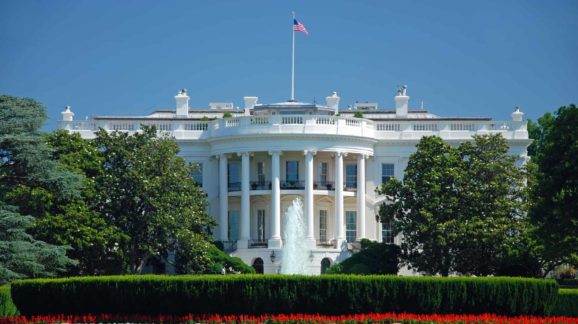Celebrate Decade of JOBS Act as Deregulatory Success

Photo Credit: Getty
10 years ago, a GOP-controlled House, a Democrat-controlled Senate, and a Democratic president came together to lighten the regulatory burden on America’s upstart job creators. On its 10th anniversary, the Jumpstart Our Business Startups (JOBS) Act can be called an unequivocal bipartisan deregulatory success. While not as far-reaching in its deregulatory scope as other bipartisan achievements such as airline deregulation, the JOBS Act has resulted in significant gains for startup entrepreneurs and middle-class investors, including women and minorities.
Signed by President Barack Obama on April 5, 2012, the JOBS Act lifted and relaxed both decades-old and then-recent regulatory barriers that hindered entrepreneurs’ access to capital and investors’ access to wealth creation from startup and emerging growth companies. In Congress, it had been pushed by Sen. Pat Toomey (R-PA)—now Ranking Member on the Senate Banking Committee—and Rep. Patrick McHenry (R-NC)—now Ranking Member on the House Financial Services Committee—along with Reps. David Schweikert (R-AZ), Darrell Issa (R-CA), and Rep. Stephen Fincher (R-TN).
The modest deregulation from the JOBS Act has made it easier for innovative firms both to go public and to raise capital while staying private. Much more needs to be done for startups and emerging growth firms—including stopping new threats to smaller public and private firms like the Securities and Exchange Commission’s (SEC) pending climate disclosure rule—but it’s worth looking back to see the real gains for America’s small and innovative companies that resulted from this unique bipartisan legislation.
The inspiration from the JOBS Act came from many diverse sources. The Kansas City-based Kauffman Foundation made the pathbreaking finding in 2010 that new businesses accounted for the bulk of U.S. job creation. Kauffman Foundation researcher Tim Kane, now a fellow at the Hoover Institution, found that since the 1970s, businesses less than five years old accounted for 100 percent of net new jobs. The Case Foundation also played a role in putting the fostering of entrepreneurship at the top of a consensus policy agenda.
CEI led coalitions in support of the proposals that would be included in the JOBS Act, and I wrote and testified in support of these proposals leading up to the legislation. Many Democrats in Congress who supported Sarbanes-Oxley, Dodd-Frank, and other laws that imposed mandates on public companies came to agree with Republicans that startups and emerging growth companies shouldn’t face the same regulation as Fortune 500 firms.
I have previously gone over the successes for many provisions of the JOBS Act. In a Forbes column, I noted that “the JOBS Act eased the way for some important firms to go public” and that “these include many biotechnology and pharmaceutical firms that are developing life-saving drugs and therapies.” In 2017, the Biotechnology Industry Organization found that firms that went public pursuant to Title I of the JOBS Act had 696 therapies in development, and the Food and Drug Administration has approved 18 new treatments from JOBS Act companies.
The JOBS Act’s Title II largely repealed the decades-old ban on advertising of private stock not subject to most SEC rules. While this stock is still only available to accredited investors—those with more than $1 million in assets other than their primary residence or who make more than $200,000 a year—entrepreneurs can now cast a wide net for these investors through general advertising. A whole new form of investment-based crowdfunding has sprung up as websites like OurCrowd.com now match accredited investors with entrepreneurs.
Although the Title III provision to provide for investment-backed crowdfunding for small entrepreneurs was hamstrung by the Obama administration’s SEC, which delayed implementing the provision for three and a half years and then added excessive red tape that wasn’t required by the law, crowdfunding portals such as StartEngine and Republic were able to get offerings off the ground in spite of this. Their efforts got a boost through revised rules of the Trump administration SEC in 2020 to clear away much of this red tape.
The results have been a true boon to financial inclusion. As Paul Jossey, who works with crowdfunding offerings as principal attorney at Jossey PLLC and is also an adjunct fellow at CEI, writes, “Equity Crowdfunding (Reg CF), the innovative tool that allows middle class people to invest in early-stage companies, has now topped $1.1 billion in investment.” Citing data from Crowdfund Capital Advisors, Jossey writes that “total investment may double in 2022, equaling all previous years combined.”
And the growth of equity crowdfunding under the JOBS Act appears to have particularly benefited minority entrepreneurs. Erin Holloway, president of the FundAmerica crowdfunding platform, writes in Crowdfund Insider that “women and people of color make up 40 percent of issuers using Reg CF.” According to Holloway, that contrasts to only 1.2 percent of venture capital invested in U.S. startups going to Black founders in 2021, and just 2.3 percent to women in 2020.
This week, Toomey introduced a package of nearly 30 bills dubbed JOBS Act 4.0 to clear away more red tape to accelerate growth for small and midsize companies. To mark the 10th anniversary of what can only be called a successful bipartisan achievement, members of Congress should commemorate the occasion by coming together again to build on the JOBS Act’s gains for investors and entrepreneurs.
